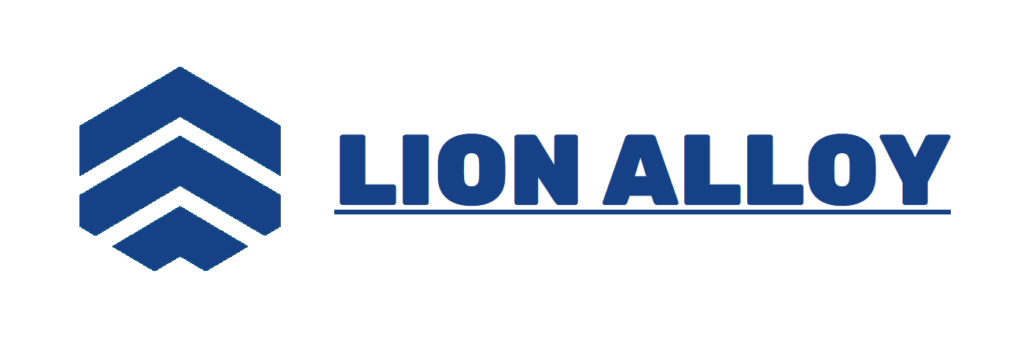Acero dúplex F53 (UNS S32750): Introducción del producto
El acero inoxidable dúplex F53, también conocido como UNS S32750, es una aleación altamente resistente a la corrosión con propiedades mecánicas superiores. Este artículo proporciona una introducción completa al acero dúplex F53 (UNS S32750), que abarca su composición química, propiedades mecánicas, rendimiento a diferentes temperaturas, aplicaciones industriales, formas y tamaños, estándares de producción, capacidades de soldadura y procesamiento, ventajas y desventajas, y una comparación. con aleaciones similares.
Composición química
El acero dúplex F53 (UNS S32750) tiene una composición química equilibrada que mejora su resistencia a la corrosión y resistencia mecánica:
| Elemento | Composición (%) |
|---|---|
| Cromo (Cr) | 24,0 – 26,0 |
| Níquel (Ni) | 6,0 – 8,0 |
| Molibdeno (Mo) | 3,0 – 5,0 |
| Nitrógeno (N) | 0.24 – 0.32 |
| Carbono (C) | 0.030 máx. |
| Silicio (Si) | 0.80 máx. |
| Manganeso (Mn) | 1,20 máximo |
| Fósforo (P) | 0.035 máx. |
| Azufre (S) | 0.020 máx. |
Propiedades mecánicas
Duplex Steel F53 (UNS S32750) exhibe excelentes propiedades mecánicas adecuadas para una amplia gama de aplicaciones:
| Propiedad | Valor |
|---|---|
| Resistencia a la tracción, ksi (MPa) | 116 minutos (800 minutos) |
| Límite elástico (0,2 % de compensación), ksi (MPa) | 80 minutos (550 minutos) |
| Alargamiento (% en 2 pulgadas) | 15 minutos |
| Dureza, Rockwell C (HRC) | 32 máximo |
Características de presentación
Duplex Steel F53 (UNS S32750) ofrece un rendimiento superior en diversas condiciones:
- Resistencia a la corrosión: Excelente resistencia al agrietamiento por corrosión bajo tensión (SCC) inducido por cloruro, picaduras y corrosión en grietas en ambientes agresivos, como agua de mar y procesamiento químico.
- Fortaleza: Mayor resistencia en comparación con los aceros inoxidables austeníticos estándar, lo que lo hace adecuado para aplicaciones estructurales que requieren alta resistencia mecánica.
- Soldabilidad: Buena soldabilidad con técnicas y materiales de relleno adecuados, lo que garantiza facilidad de fabricación y reparación.
Aplicaciones industriales
El acero dúplex F53 (UNS S32750) encuentra un amplio uso en industrias que requieren una sólida resistencia a la corrosión y alta resistencia:
| Sector industrial | Aplicaciones |
|---|---|
| Petróleo y gas | Tuberías, válvulas y componentes marinos y submarinos expuestos a fluidos corrosivos. |
| Procesamiento químico | Intercambiadores de calor, recipientes a presión y tanques que manipulan productos químicos agresivos. |
| Marina | Ejes de hélices, plantas desalinizadoras de agua de mar y componentes estructurales marinos. |
Formas y tamaños
Duplex Steel F53 (UNS S32750) está disponible en varias formas y tamaños para satisfacer las necesidades de aplicaciones específicas:
- Formas: Chapas, placas, barras, tubos, caños y accesorios.
- Tamaños: Espesores que van desde 0,5 mm hasta 50 mm para placas, y diámetros que van desde 6 mm hasta 300 mm para barras redondas.
Estándares de producción
Duplex Steel F53 (UNS S32750) cumple con los estándares de producción internacionales que garantizan calidad y confiabilidad:
| Formulario de producto | Formas disponibles | Tamaños disponibles | Estándares de producción |
|---|---|---|---|
| Platos/Hojas | Hojas, Placas | Espesor: 0,5 mm – 50 mm | ASTM A240, EN 10088 |
| Barras/varillas | Barras redondas, barras cuadradas | Diámetro: 6 mm – 300 mm | ASTM A276, EN 10088 |
| Tuberías/Tubos | Sin costura, soldada | Diámetro exterior: 6 mm – 300 mm | ASTM A790, ASTM A789 |
Soldadura y procesamiento
Duplex Steel F53 (UNS S32750) ofrece buenas características de soldabilidad y procesamiento:
- Soldadura: Se puede soldar utilizando métodos estándar como TIG, MIG y soldadura por arco sumergido, con un precalentamiento adecuado y un tratamiento térmico posterior a la soldadura para mantener la resistencia a la corrosión.
- Maquinabilidad: Generalmente más bajos que los aceros inoxidables austeníticos, requieren velocidades más lentas y más potencia para las operaciones de mecanizado.
Ventajas y desventajas
| Aspecto | Detalles |
|---|---|
| Ventajas | Excepcional resistencia a la corrosión en ambientes agresivos, alta resistencia, buena soldabilidad, adecuado para una amplia gama de aplicaciones en las industrias marina, de petróleo y gas y química. |
| Desventajas | Su menor tenacidad en comparación con los aceros inoxidables austeníticos requiere un manejo cuidadoso durante la soldadura y la fabricación debido a su microestructura de doble fase. |
Comparación con aleaciones similares
El acero dúplex F53 (UNS S32750) a menudo se compara con otros aceros inoxidables dúplex como el F51 (UNS S31803) y aceros inoxidables súper dúplex como el F55 (UNS S32760). Aquí hay una breve comparación:
| Tipo/propiedad de aleación | Acero dúplex F53 (UNS S32750) | Acero dúplex F51 (UNS S31803) | Acero súper dúplex F55 (UNS S32760) |
|---|---|---|---|
| Resistencia a la corrosión | Excelente resistencia a la corrosión inducida por cloruro, incluida la corrosión por picaduras y grietas. | Excelente resistencia, ligeramente inferior a F53 en ambientes agresivos con cloruros. | Resistencia mejorada a la corrosión por picaduras y grietas, particularmente en aplicaciones de agua de mar. |
| Fortaleza | Mayor resistencia en comparación con los aceros dúplex estándar, adecuados para aplicaciones estructurales. | Alta resistencia con buena tenacidad, adecuado para aplicaciones de uso general. | La mayor resistencia entre los aceros dúplex, ideal para aplicaciones de servicio pesado en entornos hostiles. |
| Aplicaciones | Petróleo y gas, procesamiento químico, ambientes marinos. | Aplicaciones similares con uso más amplio en aplicaciones estructurales y arquitectónicas. | Plataformas marinas, intercambiadores de calor y sistemas de manipulación de agua de mar. |
Este artículo detallado presenta Duplex Steel F53 (UNS S32750), destacando su composición química, propiedades mecánicas, características de rendimiento, aplicaciones industriales, formas y tamaños disponibles, estándares de producción, capacidades de soldadura y procesamiento, así como ventajas, desventajas y una comparación con aleaciones similares. Los ingenieros y profesionales que buscan materiales duraderos para aplicaciones que requieren resistencia a la corrosión y alta resistencia encontrarán esta información valiosa para seleccionar la aleación adecuada para satisfacer necesidades operativas específicas.


